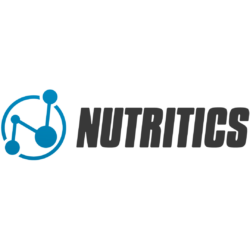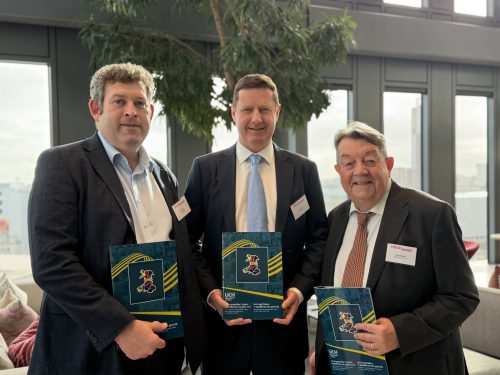Delivering on ‘non-negotiables’: dietary options, sustainability and customer experience
In today’s hospitality landscape, with rising expectations around value, quality and purpose, it is important for restaurants, pubs and bars to consider how to deliver what many consumers consider to be “non-negotiables.”
Arguably the foundation to building trust and loyalty among staff and guests and economically sustainable success, these are:
- Dietary inclusivity
- Sustainability
- Consistently excellent customer experience
Taking dietary inclusivity, an estimated 2.6 million people in the UK live with a diagnosed food allergy[1]. The reality of this, is that millions of guests are therefore relying on operators to keep them safe.
In terms of sustainability, according to our Sustainability Matters report, nearly two-thirds (64%) of 18–34-year-olds are likely to choose to eat and drink with sustainability in mind. At the same time, it’s vital from a staffing perspective, with more than two in five (43%) hospitality workers saying they would consider resigning from a company with a poor sustainability record. A significant 19% say they already have.[2]
Last but not least is the bedrock of a successful hospitality business – the importance of delivering great customer experiences every time. This is nothing new, of course, but guest expectations are shifting with changing consumer habits and economic challenges. Lumina Intelligence insight shows nearly 79% of consumers prioritise quality and value for money when it comes to selecting a venue.[3] Guests are willing to spend more, but only if the experience feels worthwhile.
When these three criteria are met, then trust is built with your customers and, when a guest trusts your venue to deliver, they’re more likely to return, recommend you and become loyal advocates. Easy to say, so how can operators capitalise on the opportunity?
[1] Our Food Hypersensitivity Strategy and commitment to consumers – Food Standards Agency
[2] Sustainability Matters Report 2024 https://www.nutritics.com/en/ebooks-and-reports/sustainability-matters-employee-report/
[3] Lumina Intelligence, July 2025
Operational efficiency
But dietary inclusivity, sustainability and customer experience requires smart workflows.
With better systems and processes human error is reduced, waste is reduced, and valuable time is saved. In turn customers can have more confidence around allergens, the site’s sustainability credentials are boosted and, with the time saved, teams can deliver better customer service.
Efficiency isn’t just about speed; it’s about precision and care, too.
Brand differentiation
In recent times, hospitality brands built around one or more of these ‘non-negotiables’ have stood out in the market and seen success as a result.
Take Caravan, for example, a brand known for its commitment to seasonal, quality ingredients and responsible sourcing. Or JP Restaurants, where co-founder Dominic Jones removed all nut-based items from menus and developed a rigorous allergen scoring system (each dish is rated from one to five based on risk and anything scoring a five is excluded). These brands aren’t just ticking boxes but are setting the benchmarks by which other operations are now judged.
Building confidence
Just one slip-up damages consumer trust in your brand.
In fact, 88% of people with food allergies say they would leave a restaurant if they lacked confidence in its safety information[1].
As dietary needs are becoming more complex – beyond the 14 legally recognised allergens, guests may follow gluten-free, dairy-free, vegetarian, or vegan diets, each with its own nuances and risks.
Likewise, consumers are wary of brands overstating their sustainable credentials or even of being ‘greenwashed’ and what is perceived to be good customer service is ever more demanding,.
Much of the antidote to this lies in good staff training. Not just for compliance, but for building a culture of care and confidence; equipping teams with the knowledge they need to reassure customers, discuss allergens or sustainability practices and deliver great customer service.
Maintaining consistency across menus, whether digital or printed, is critical. Dietary information must be accurate and up to date, especially with frequent supplier changes. Using digital platforms can reduce menu prep time by up to 75%, as seen in a recent case study from Butcombe Group [link]. But tech is only effective when paired with clear processes.
[1] Young people with allergies say food retailers should do more | Anaphylaxis UK
In conclusion
Delivering on the non-negotiables is a baseline expectation.
By embracing smarter menu management, operators can reduce risk and respond swiftly to supplier changes. Clear, transparent communication, both on menus and through well-trained staff builds trust and reassures guests that their needs are understood and respected.
Empowering teams with the confidence to speak knowledgeably about allergens and sustainability can also strengthen trust between site and guest, a great place to start building customer loyalty.
In the end, consistency delivers, and the restaurants, pubs and bars that get it right, every time, create experiences that guests remember, share and return to.






